Introduction
This is the programme for the UKAN+ Summer School 2023 at 170 Queen’s Gate, Imperial College London. For more information about the event, see the general event page here. WiFi details for connecting as a guest to eduroam will be provided at the event.
Schedule
This schedule is subject to change. The DSP and Academic Smartcuts sessions are described in the synopsis section below. Note that when the Drawing Room is not being used for training, you may use it for quiet work. Food and drink can be taken into the Council and Drawing Rooms with care.
The social event with food and an open bar will be held from 6.30pm on Wednesday 27th September at PJ’s Chelsea Brasserie. We will set off from the venue at 6pm sharp.
| DAY 1 (Tues. 26th) | Activity | Council Room | Drawing Room | Solar Room |
|---|---|---|---|---|
| 9am-11am | Sign in (reception area) with morning tea | X | ||
| 11am | Opening address: Philip Nelson | X | ||
| 11.30am | Lunch | X | ||
| 1pm | DSP#1 Paul White: General (Fourier and random) | X | ||
| 3pm | Coffee break | X | ||
| 3.30pm | DSP#2 Jordan Cheer (Digital filters) | X | ||
| 4.30pm | DSP#3 Jordan Cheer (Active Noise Control) | X | ||
| 5.30pm | Close | |||
| DAY 2 (Wed. 27th) | Activity | Council Room | Drawing Room | Solar Room |
|---|---|---|---|---|
| 9am | Morning tea | X | ||
| 10am | DSP#4 Paul White (Underwater Acoustics) | X | ||
| 11am | DSP#5 Filippo Fazi (Virtual/spatial audio) | X | ||
| 12pm | Lunch | X | ||
| 1pm | DSP#6 Filippo Fazi (Virtual/spatial audio) | X | ||
| 2pm | Coffee break | X | ||
| 2.30pm – 5.30pm | Academic Smartcuts sessions 1 to 3 | X | ||
| 6.30pm | Social event at PJ’s Chelsea Brasserie | |||
| DAY 3 (Thurs. 28th) | Activity | Council Room | Drawing Room | Solar Room |
|---|---|---|---|---|
| 9am | Morning tea | X | ||
| 10am | Academic Smartcuts Sessions 4 and 5 | X | ||
| 12pm | Lunch | X | ||
| 1pm | Academic Smartcuts Session 6 | X | ||
| 2pm | Coffee break | X | ||
| 2.30pm | Academic Smartcuts Session 7 and debrief | X | X | |
| 5pm | Closing address from Kirill Horoshenkov and Richard Craster and feedback (see link to form below) | X | ||
Presenters

Professor Philip Nelson will deliver the opening address. Philip holds the post of Professor of Acoustics in the Institute of Sound and Vibration Research (ISVR) at the University of Southampton. He has personal research interests in the fields of acoustics, vibrations, signal processing, control systems and fluid dynamics. He served from 2005-2013 as Pro Vice-Chancellor of the University of Southampton, with particular responsibility for Research and Enterprise. From 2014-2018 he served as Chief Executive of the Engineering and Physical Sciences Research Council. He is a Fellow of the Royal Academy of Engineering and was made a Commander of the Order of the British Empire in the 2018 New Year Honours for his services to UK Engineering and Science.

Professor Kirill Horoshenkov, Director of UKAN+, will deliver the closing address. Professor Horoshenkov (FREng) holds a MEng in Electro-Acoustics and Ultrasonic Engineering from Moscow University for Radioengineering, Electronics and Automatics (Russia) and PhD in Computational and Experimental Acoustics from the University of Bradford (UK). Before accepting the position of a Personal Chair at the University of Sheffield in May 2013 he worked at the University of Bradford to progress from a research assistant to a full professor.
Professor Horoshenkov’s main research interests are in sensors for water industry, acoustic materials and physical acoustics. In addition to UKAN+, he leads the EPSRC Pipebots Programme Grant. He also leads Theme 3 (Inspecting and restoring water infrastructures using robotic autonomous systems) on the EPSRC TWENTY65 Grand Challenges Grant.
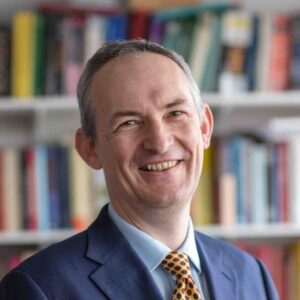
Professor Richard Craster is the Dean of the Faculty of Natural Sciences at Imperial College and the Co-Director of UKAN+. Previously, he was Head of Department of Mathematics at Imperial College, a role he held for six years (2011-2017). He is also Director of the CNRS-Imperial “Abraham de Moivre” International Research Laboratory in Mathematics. He has been at Imperial College as an academic since 1998 apart from holding a distinguished professorship in Alberta, Canada, 2008-2010 returning to become Head of the Mathematics Department at Imperial. In addition to being a Professor of Applied Mathematics he is also a member of the Mechanical Engineering Department at Imperial.
Richard’s research lies in the field of applied mathematics in particular wave mechanics, metamaterials, fluid mechanics and elasticity. He is the co-editor of one of first books on Acoustic Metamaterials, PI of an EPSRC Programme grant on the Mathematical fundamentals of Metamaterials, and recently co-editor of the volume on Elastic Metamaterials for the Handbook of Metamaterials.
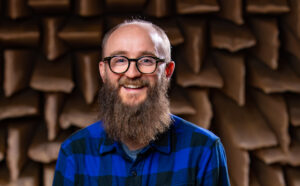
Jordan Cheer is a Professor of Active Acoustic Systems at ISVR and Head of the Signal Processing, Audio and Hearing Research Group. His research covers both active control of noise and vibration, metamaterials, acoustic black holes and sound field control for audio reproduction. Jordan graduated from the University of Surrey in 2008 with a BMus (Tonmeister) in Music and Sound Recording. In 2009 he received the MSc in Sound and Vibration from the ISVR at the University of Southampton. Following this he carried out his doctoral research in the Signal Processing and Control group of the ISVR on the subject of active control of the acoustic environment in automobile cabins funded by the Green City Car Project which was part of the European Commission 7th Framework Programme. Having received the PhD in 2012, he was then appointed as a Research Fellow in Active Control at the ISVR. He was promoted to Senior Research Fellow (2015), New Frontiers Fellow (2015), Lecturer (2017), Associate Professor (2019) and Professor (2023). He is also currently a Subject Editor for the Journal of Sound and Vibration focusing on Signal Processing and Data Science and Associate Editor for the Journal of the Acoustical Society of America focusing on Noise.
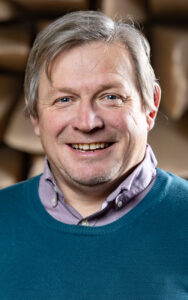
Paul White is Professor of Statistical Signal Processing at the ISVR, where he has worked since joining to start his PhD in 1985 and eventually serving as Head of Department for 6 years. His research interests are focused on signal processing and machine learning, in particular applied to problems in underwater acoustics. He works closely with colleagues in both oceanography and engineering on problems such as monitoring for marine carbon capture and storage facilities; the detection, classification and localisation of whales and dolphins and understanding the impact of underwater sound on marine life.
Filippo Maria Fazi is Professor of Acoustics and Signal Processing at the ISVR, where he leads the Virtual Acoustics and Audio Engineering Team. He also serves as Director of Research of the Institute. His research interests include acoustics, audio technologies, electroacoustics and digital signal processing, with special focus on acoustical inverse problems, multi-channel systems (including Ambisonics and Wave Field Synthesis), cross-talk cancellation systems, virtual acoustics, and microphone arrays. He is also co-founder and chief scientist of Audioscenic, a young and dynamic start-up company that commercialises the listener-adaptive loudspeaker array technologies developed by Prof Fazi and his team. Professor Fazi is a recipient of the Tyndall Medal (awarded by the Institute of Acoustics in 2018), a fellow of the Audio Engineering Society, and a member of the Institute of Acoustics.
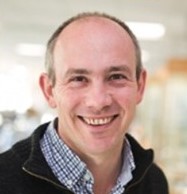
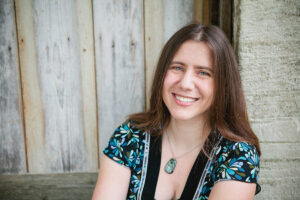
Professor Dan Allwood (Peak Writing) and Dr Elaine Massung (Academic Smartcuts) collaborate to provide training to PhD students, post-docs, and early career academics.
Dan worked as a postdoc in physics and chemistry departments before starting an EPSRC fellowship in an engineering department. He developed a successful career as an academic, researching magnetic nanotechnology with projects funded by EPSRC, BBSRC, the EU, and industry, and bringing in over £4.7 million in research funding as lead investigator. He has published over 100 peer-reviewed papers in journals such as Science, Nature, and Advanced Functional Materials, and supervised over 20 PhD students to completion.
Elaine’s PhD research straddled the departments of archaeology and computer science to investigate how to use today’s technology to tell the story of the past. Her work highlighted the necessity of overcoming the “curse of knowledge” to construct a clear narrative and meet the audience’s needs. She built on these lessons in later jobs ranging from post-doctoral researcher to copy editor for an academic journal, eventually becoming the Robotics portfolio manager and Engineering panel convener at EPSRC. Everything she’s learned along the way about clear communication and navigating the funding system has been turned into the business Academic Smartcuts.
Synopses
The DSP sessions are described below.
- DSP#1 Paul White, General: this session will cover the basics of Fourier analysis and the characterisation of random signals.
- DSP#2 Jordan Cheer, Digital filters: this session will provide an overview of digital filter design, covering the fundamental design process, engineering trade-offs and practical examples.
- DSP#3 Jordan Cheer, Active Noise Control: this session will cover fundamental principles of active noise control from both a physical acoustics and signal processing perspective, before providing an overview of the current state-of-the-art and examples of commercial exploitation.
- DSP#4 Paul White, Underwater Acoustics: this session will be more application focused than DSP#1, but will attempt to retain some general principles too. So to that end we will consider some basics of array processing, using arrays to reduce noise on measurements and using them to estimate the location of a source.
- DSP#5 Filippo Fazi, Virtual/spatial audio part one.
- DSP#6 Filippo Fazi, Virtual/spatial audio part two.
The Academic Smartcuts sessions are as follows:
- Session 1: Beyond Papers: Developing a Non-Academic Profile
- Session 2: Considering audience and purpose
- Session 3: Fellowship interview preparation (taught guidance)
- Session 4: The importance of summaries
- Session 5: Impact activities
- Session 6: Future planning and long-term goals
- Session 7: Fellowship interview preparation (mock panel interviews)
More information about each of these is below.
Session 1: Beyond papers: developing a non-academic profile
It is necessary for researchers to look beyond the traditional journal or conference if they want to build a well-rounded track record. For those who are considering a Fellowship application, it is vital to demonstrate that they can serve as ambassadors to advocate for their research area. This session provides an overview of how participants can get involved with non-academic platforms such as blogs, podcasts, and social media to harness other people’s audiences while developing their own track record.
Session 2: Considering audience and purpose
Understanding the audience and purpose of any document will help writers better communicate their message. This session will use abstracts and grant proposals as practical examples to demonstrate these concepts in action.
Session 3: Fellowship interview preparation
Fellowships are personal awards. As such, they require a different approach compared to a standard grant. Principal investigators (PIs) must not only demonstrate leadership, ambassadorship, and advocacy through their track record, but they must also undergo an interview to show how they fit the assessment criteria. The first part of this two-part session is open to everyone to learn about interview preparation; those who wish to experience a mock interview should also register for Session 7.
Session 4: The importance of summaries
The lay summary is one of the most overlooked aspects of writing a UK Research and Innovation (UKRI) grant application. However, this short description is used by each audience of the proposal: portfolio managers, reviewers, and panel members. This session will discuss how participants can lay the groundwork for a strong proposal and make a good first impression on the reader.
Session 5: developing impact activities
Impact has multiple connotations across UKRI research councils. This session introduces participants to how it is used and encourages them to think about different activities they could potentially develop for current or future research projects.
Session 6: Future planning and long-term goals
“Where do you want to be in five years?” The question can trip up even the most well-practiced interviewee. This session encourages participants to begin thinking about their research vision, what gaps they need to fill in their track record, and what steps they can take to address these gaps.
Session 7: Fellowship interview preparation (mock panel interviews)
Please note: Participants must register their interest in advance and be prepared to do a little preliminary work to get the most out of the session.
This is a mock interview with a twist: the panel is composed of participants, each of whom has the opportunity to carry out a different role during each interview. By seeing the panel process from the inside, participants will gain further insight about how to best navigate their own interviews.
Feedback
Once you’ve attended the school, you’ll be invited to fill in the form here to provide feedback. This will inform our future schools.